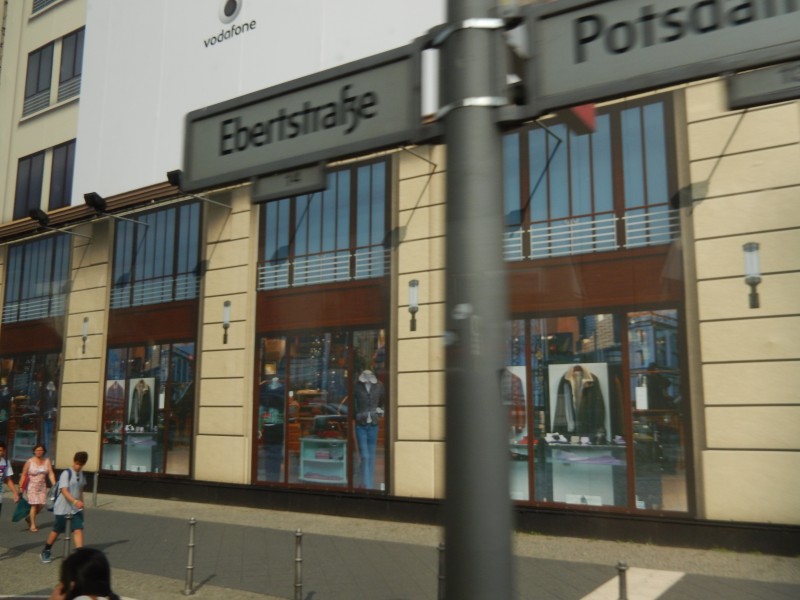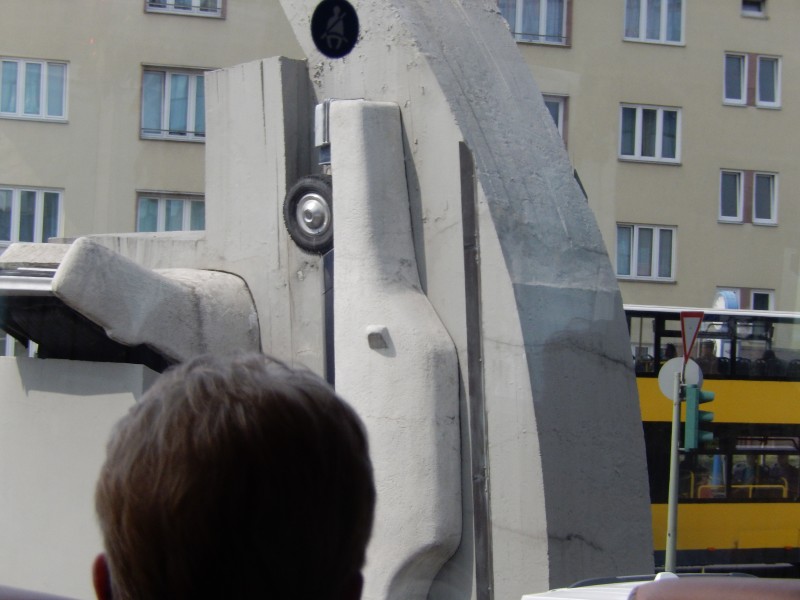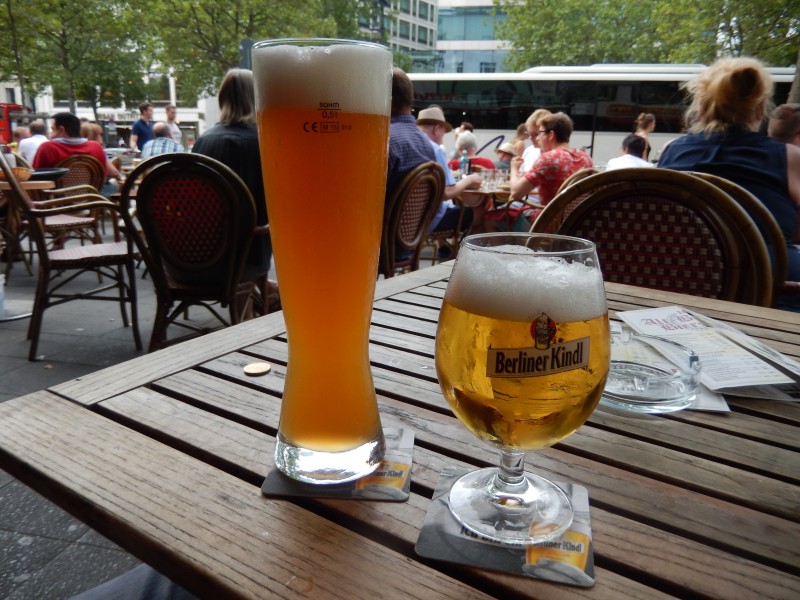This was the warmest day of our trip. The temperature reached the upper 80s, and we spent the entire day without wearing a jacket or using an umbrella.
On Berlin streets . . . The Brandenburg Gate, originally the west entrance to Berlin, is the only surviving city gate. The Berlin Wall actually went around the Brandenburg Gate, putting it in the eastern sector of the city. . . . The Berlin street named Unter den Linden runs from the Brandenburg Gate to the palace. People used to walk on that street to be seen, much like the Champs Elysée in Paris. . . . There is a saying that Berlin has three kinds of streets: ein Strassen für laufen, ein Strassen für maufen, und ein Strassen für maufen. A street to walk, a street to shop, and a street to drink. . . . The Rodeo Drive of Berlin is the Kurfurstendamm. That would make it ein Strassen für maufen. . . . We were advised not to jaywalk in Berlin because, as we all know, Germans like to follow the rules.
Because of all the bombing damage (60 percent of the city was destroyed in World War II and the rest was badly damaged), everything in Berlin is restored. Our guide pointed out a large building that still needs to be restored, but there hasn’t been enough money to do the work. In the meantime, the building is covered with a false façade and painted to look like the fully restored building. No eyesores allowed.

Only a painted façade; not a real department store.
Berlin has a smaller population than Paris, but seven times the area of Paris. With that much space, Berlin has no heavy traffic problems. According to our guide, the city has reacted to that situation by setting up construction zones in order to create traffic problems. He pointed out that we would see no one working in any of the construction zones (we didn’t) because their only purpose is to obstruct traffic. If we noticed someone working in a construction zone, the guide told us to take a picture and send it to the mayor, because something is wrong. If we saw only one person in the construction zone and that person was not working, it’s ok because he’s there to make sure no one else comes to the site to work. ☺
At Humboldt University in Berlin’s Opera Square, there is an empty library underground. This is in commemoration of the 1933 “burning of the books” when all books relating to communism were burned.
The Nazis executed over six million Jews in the concentration camps–the largest number of “undesirable” people. At that time, Jews made up less than one percent of the German population. Most Jews who were executed were from Poland, where Jews comprised less than nine percent of the total population.
There’s a concrete sculpture in Berlin that encloses two American automobiles. I don’t remember what this symbolized, but the guide noted they had to use American rather than German cars because German men love their cars more than they love their wives.

What is this artist trying to tell me?
When commercial buildings are constructed in Berlin, one percent of the construction cost must be spent on art at the site.
Our guide remembered the candy and raisin drop during the Berlin airlift. He said that after so many food shortages, it was an extraordinary treat to have something sweet to eat. Unfortunately, he never caught one of the dropped bags of sweets.
During our free time in the city, we went to a sidewalk beer garden and had a glass of German beer. Then we got back on the train for the three-hour ride back to the ship. (Note: Only eleven of the 900 passengers remained on board the ship today. Everyone else took one of the six or seven excursions to Berlin and the surrounding area.) After a long and tiring 16-hour day of travel and sightseeing, we arrived at the ship and were greeted by the entire staff in full dress uniforms, forming two lines for us to pass between. A small band was playing, the staff was smiling and singing, and we were each given a welcome-back glass of champagne. What a homecoming!

Prosit!